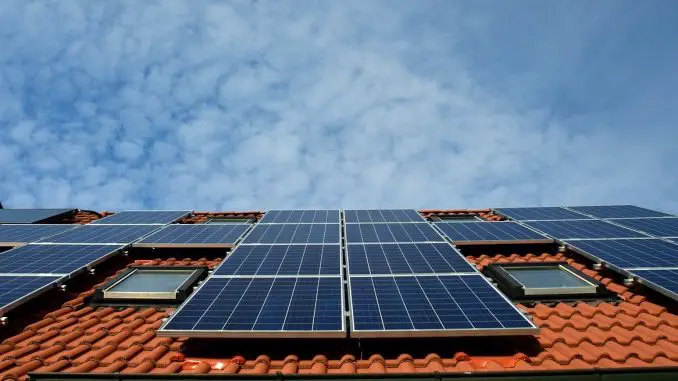
How good is solar energy? As with everything else, solar energy has its good and less good sides. Solar energy is one of the best energy sources we have on our earth. This guide will be useful if you plan to be a little more environmentally friendly and are considering investing in solar energy and also want to know more about how solar cells work.
Benefits of solar energy
1. Energy, even when cloudy
With solar panels, you generate electricity from solar energy. The solar panels can even produce electricity during cloudy days, so they have no need for direct sunlight. Namely, solar panels use energy from the sun and not heat energy.
It works as if an inverter converts the energy into 230V alternating current. The inverter is connected to the ordinary switching center of the house and thus the power can be used for the household. If you produce more electricity than you use, it is exported back to the grid and can instead be used during the night or during occasions when you use more energy than you generate.
2. Maintenance free
Solar panels need almost no maintenance. The only thing would be if they happen to get dirt or leaves on them and then just brush it off. The panels’ warranty is usually 25 years, and the inverter’s warranty is between 5-10 years.
It is important to point out that the system should be examined every 4-7 years. It is also recommended that you ask your installer about the specific maintenance requirements for your particular system.
3. A true environmental friend Solar energy is environmentally friendly
In addition to saving energy with a solar system, you become a good environmental friend with a reduced environmental impact. Solar energy does not emit carbon dioxide or other emissions that affect the atmosphere. There are almost no toxins released into the environment while we use solar energy to meet our energy needs.
The installation and production of the solar systems are certainly associated with certain emissions, but they are of much less significance than the other alternatives available in the energy sector.
4. Own electricity generation
When selecting and implementing solar energy, you generate your own electricity. This means that you will not be affected by the expected rising electricity prices. Many villas have enough space on the roof for enough solar cells to produce solar energy that covers the energy needs during the summer months.
During the winter when the solar radiation – or the insulation as it is called – is lower, only one-seventh of the energy that can be produced during a summer day is produced daily, which means that you then have to buy electricity from the public grid.
However, by selling surplus harness during the summer, these costs can be largely leveled off, depending on your electricity network provider.
5. Increases the value of your house
Solar energy is considered an improvement for your home and can increase the total value of your villa. It makes it more attractive to potential buyers if you are interested in selling the house in the future. By adding solar panels, you increase your property’s standard of energy use. You then have the opportunity to conduct an energy inspection to obtain an energy certification, which gives the villa a certificate that the home is energy-efficient.

Leave a Reply